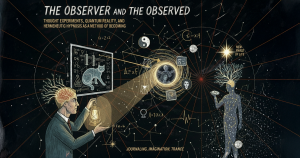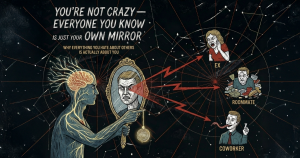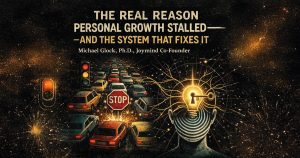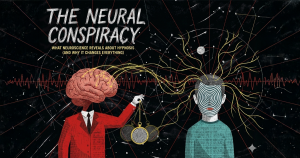How Hypnosis in the Media Shapes Public Perception of Alternative Mental Health
In the modern health space, hypnosis is often sensationalized—frequently portrayed in the media as a mysterious or even comical spectacle. From stage shows featuring people clucking like chickens to Hollywood thrillers involving swinging watches and mind control, hypnosis in the media has long been misrepresented. These dramatic portrayals not only distort reality but also contribute to the widespread misunderstanding of hypnosis as a legitimate form of alternative mental health treatment.
Debunking the Myths: What Certified Hypnotherapists Actually Do
Despite media portrayals, hypnotherapy is not about control—it’s about collaboration. Learn how certified hypnotherapists work within the health space to promote healing, not illusion.
The truth is, hypnosis—when facilitated by a certified hypnotherapist—is a safe, ethical, and evidence-based modality grounded in psychology and neuroscience. Rather than manipulating people, it works by gently guiding individuals into a meditative, relaxed state where they can access their subconscious mind to create meaningful, lasting change. Techniques drawn from neuro linguistic programming (NLP), often complement this process, helping individuals overcome issues like anxiety, depression, phobias, and self-sabotage.
From Sensationalism to Science: Hypnosis and the Subconscious Mind
Explore how neuro linguistic techniques and subconscious reprogramming form the foundation of modern hypnotherapy—far removed from the outdated tropes seen in hypnosis in the media.
Despite the scientific foundation supporting hypnotherapy, many people still carry outdated beliefs rooted in media stereotypes. It’s not uncommon to hear casual remarks about hypnosis being “mind control,” “witchcraft,” or “dangerous.” These misconceptions only deepen public skepticism and stigmatize a therapeutic approach that has helped thousands heal from emotional trauma, change harmful behaviors, and improve mental well-being.
The challenge is that media outlets are primarily motivated by ratings—not accuracy. Sensationalism sells, and few topics are as easy to distort as hypnosis. It’s why they are happy to report stage hypnosis, and stage hypnosis shows in Las Vegas. But clinical Hypnosis is is different, often it is called medical Hypnosis. But behind the clickbait headlines and exaggerated scenes lies a practice that belongs in the same conversation as meditation, cognitive behavioral therapy, and other alternative mental health interventions. Hypnosis works with the unconscious mind, and hypnotherapy is performed by trained professionals, not illusionists, and the therapeutic work they do is deeply personal, profound, and rooted in trust.
Let’s be clear: If hypnosis truly had the power to control minds or alter personalities, it would be weaponized, not quietly practiced in healing settings by compassionate therapists. The reality is far less theatrical and far more impactful. Hypnosis is not a magic trick—it’s a clinical tool designed to help individuals harness the power of their own subconscious mind.
As the representation of hypnosis in the media continues to evolve, it’s time to replace outdated myths with informed understanding. Certified hypnotherapists across the globe are redefining how we see this healing art—integrating it into mainstream wellness as a powerful force for transformation. By moving beyond the dramatized stories and exploring the real science behind hypnosis, we can finally give this misunderstood method the respect it deserves in the broader conversation about mental and emotional health.














